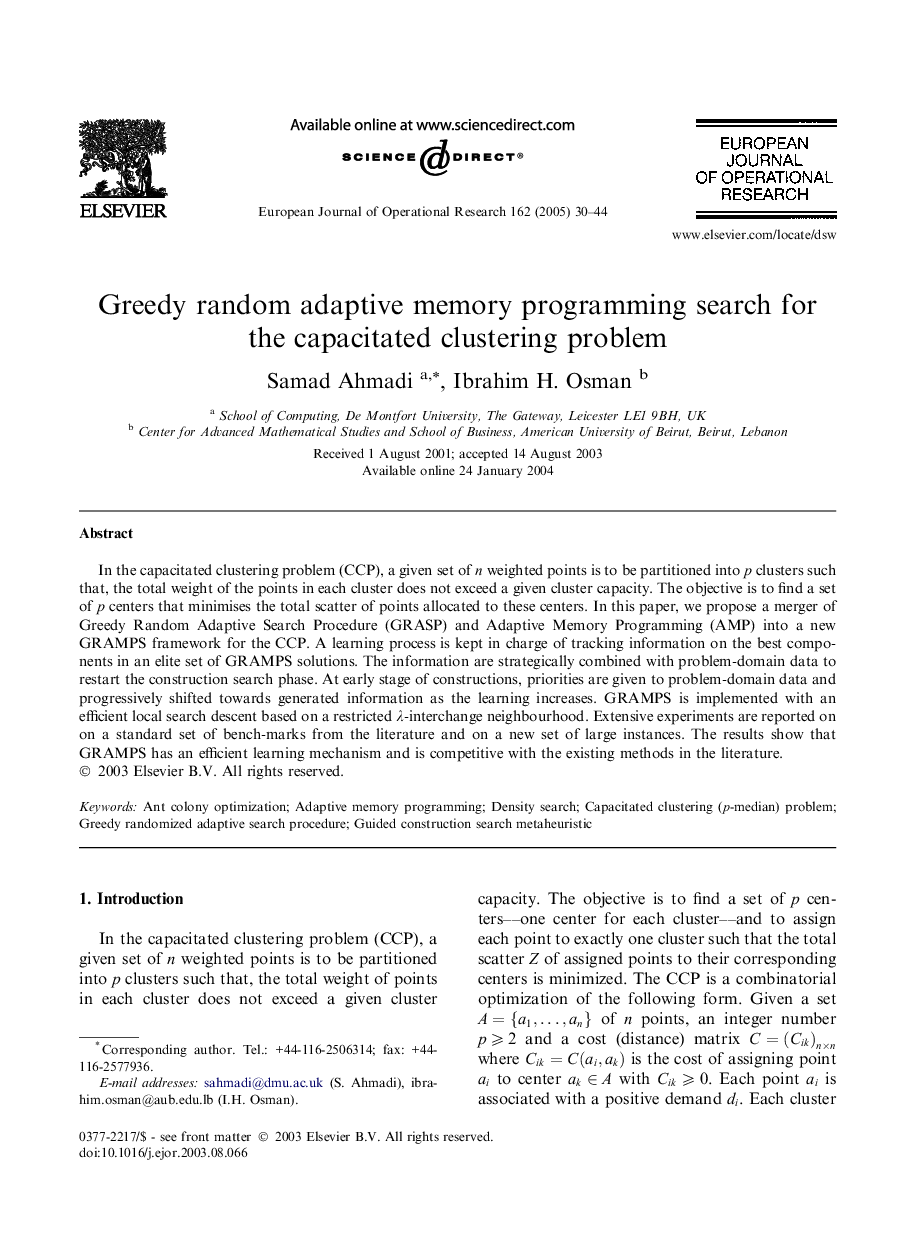| Article ID | Journal | Published Year | Pages | File Type |
|---|---|---|---|---|
| 9663964 | European Journal of Operational Research | 2005 | 15 Pages |
Abstract
In the capacitated clustering problem (CCP), a given set of n weighted points is to be partitioned into p clusters such that, the total weight of the points in each cluster does not exceed a given cluster capacity. The objective is to find a set of p centers that minimises the total scatter of points allocated to these centers. In this paper, we propose a merger of Greedy Random Adaptive Search Procedure (GRASP) and Adaptive Memory Programming (AMP) into a new GRAMPS framework for the CCP. A learning process is kept in charge of tracking information on the best components in an elite set of GRAMPS solutions. The information are strategically combined with problem-domain data to restart the construction search phase. At early stage of constructions, priorities are given to problem-domain data and progressively shifted towards generated information as the learning increases. GRAMPS is implemented with an efficient local search descent based on a restricted λ-interchange neighbourhood. Extensive experiments are reported on on a standard set of bench-marks from the literature and on a new set of large instances. The results show that GRAMPS has an efficient learning mechanism and is competitive with the existing methods in the literature.
Keywords
Related Topics
Physical Sciences and Engineering
Computer Science
Computer Science (General)
Authors
Samad Ahmadi, Ibrahim H. Osman,
